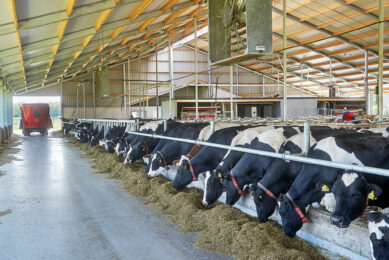Coming soon: Webinar on meat quality

Meat quality is not just a matter of doing things right in the packing plant. Proper meat quality starts during the life of chickens, pigs and veal calves. Aspects related to nutrition and genetics, for instance, play a major role as well. Those interested in optimising meat quality should tune in on July 6. A free webinar on meat quality will be broadcast at 3pm.
To register for the webinar Meat Quality, click here
Genetics, farming conditions and nutrition, to name a few, play a tremendous role in the eventual meat quality. Those aspects will be amply discussed in this webinar. The emphasis will be on pigs and pork but there is also attention for both poultry meat as well as veal.
The purpose of keeping animals in the livestock business is to ensure that consumers have access to safe, nutritious and healthy meat. Not only the processing plant determines this meat quality. Quite the opposite. What animals experience during their lives determines to a large degree what consumers will find on their plate. Examples of that will be illustrated in this webinar. 3 expert speakers will be addressing the audience.
 Pork quality: a complex concept!
Pork quality: a complex concept!
Dr Bénédicte Lebret, senior scientist, INRAE, France
Dr Bénédicte Lebret is senior scientist at the French Research Institute for Agriculture, Food and Environment (INRAE). In her presentation called “Pork quality: a complex concept!”, she will focus on the various quality attributes of pork. She will also spend attention on how to improve pork quality attributes along the value chain from farm to fork. Finally, she will talk about combining genetic and nutritional strategies to improve intrinsic and extrinsic quality attributes of pork.
 L-selenomethionine for sustainable meat production
L-selenomethionine for sustainable meat production
Jolien van Soest, central technical manager, Orffa
Jolien van Soest will take a deep dive into the world of L-selenomethionine and its impact on meat production. A growing world population and incomes increases the demand for meat. This highlights the importance of a sustainable meat production, such as longer shelf-life and less rejection of meat for human consumption. A trial with L-selenomethionine in bull calves shows how L-selenomethionine compared to sodium selenite can improve tenderness, final pH and purge. This allows for more efficient meat production. Jolien will share data from trials with swine and broilers, showing similar positive effects of L-selenomethionine on meat quality.
 Using genetics to achieve meat quality standards
Using genetics to achieve meat quality standards
Dr Grant Walling, senior service geneticist, Topigs Norsvin
The last speaker of the webinar will zoom in on the role genetics can play in achieving higher levels of meat quality. Dr Walling will discuss market segmentation for meat quality and will zoom into the questions how different products target different quality segments, how his genetics company is creating product differences using genetics. He will close off spending attention to challenges of realising meat quality in the product supply chain.
Starting time of the meat quality webinar
Starting time of the webinar on Thursday, July 6, is 3pm CET. That time corresponds to the following starting moments:
- Sydney, NSW, Australia: 11pm
- Tokyo, Japan: 10pm
- Beijing, China: 9pm
- Bangkok, Thailand: 8pm
- New Delhi, India: 6.30pm
- Dubai, UAE: 5pm
- Kyiv, Ukraine: 4pm
- London, UK: 2pm
- São Paulo, SP, Brazil: 10am
- New York, NY, United States: 9am
- Chicago, IL, United States: 8am
- Salt Lake City, UT, United States: 7am
- Los Angeles, CA, United States: 6am











